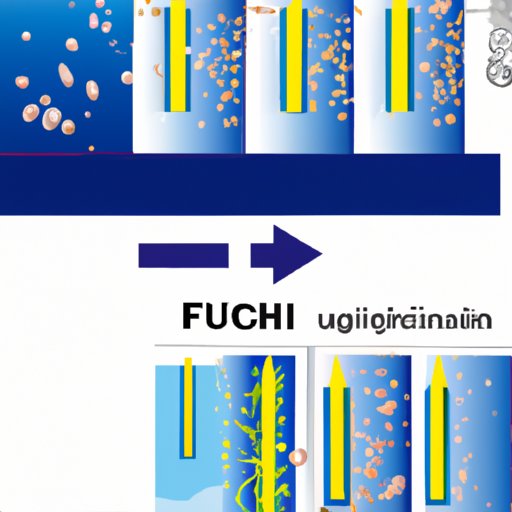Introduction
Fungal infections can be uncomfortable and inconvenient, but they don’t have to be unmanageable. One of the most commonly prescribed medications for treating fungal infections is Diflucan, which is an antifungal drug that inhibits the growth of fungi and yeast. In this article, we will explore how quickly Diflucan works for treating fungal infections. We will examine the efficacy of Diflucan, what factors influence its speed of action, and how it compares to other antifungal treatments.

Examining the Efficacy of Diflucan for Treating Fungal Infections
Diflucan, or fluconazole, is a type of antifungal medication that belongs to a class of drugs known as triazoles. It works by inhibiting the production of ergosterol, a component of the cell wall of fungi and yeast, which results in the disruption of the cell membrane and the death of the organism.
Diflucan is used to treat a variety of fungal infections, including vaginal yeast infections, oral thrush, and systemic candidiasis. It can also be used to prevent fungal infections in individuals who are immunocompromised, such as those undergoing chemotherapy or organ transplantation.
Exploring How Quickly Diflucan Takes Effect
When taking Diflucan for treating fungal infections, the speed of its effects can vary depending on several factors. These include the severity of the infection, the type of fungus involved, the dosage taken, and the individual’s metabolism and immune system.
In general, it can take anywhere from one to seven days for symptoms of the infection to improve after taking Diflucan. However, some people may experience relief more quickly than others. In some cases, symptoms may even disappear within 24 hours.

Comparing Diflucan to Other Antifungal Treatments
Diflucan is not the only antifungal treatment available. Other common antifungal medications include miconazole (Monistat), clotrimazole (Lotrimin), terbinafine (Lamisil), and ketoconazole (Nizoral). Each of these medications works in different ways, and they may have different levels of effectiveness for different types of fungal infections.
When it comes to speed of action, Diflucan may be faster than some of these other treatments. For example, miconazole and clotrimazole are applied topically, so they take effect more slowly than Diflucan, which is taken orally. Terbinafine and ketoconazole can take several weeks to produce results, while Diflucan is typically effective within a few days.
Analyzing Clinical Studies on the Speed of Diflucan’s Results
Clinical studies have found that Diflucan is generally effective in treating fungal infections within a few days. A study of 57 patients with vulvovaginal candidiasis found that symptoms improved in 88% of patients within three days of taking Diflucan, and 97% of patients experienced symptom improvement within seven days.
Another study examined the effectiveness of Diflucan for treating oropharyngeal candidiasis in HIV-positive patients. The study found that Diflucan was effective in treating the infection in 86% of patients within seven days, and all patients had complete resolution of symptoms within 14 days.
These studies suggest that Diflucan is generally effective in treating fungal infections within a few days, although there may be some variation in response time depending on the type of infection.

Investigating Patient Experiences with Diflucan Treatment
Patients who have taken Diflucan for treating fungal infections often report rapid improvement in symptoms. A survey of patients with vaginal yeast infections found that 81% reported significant symptom improvement within 24 hours of taking Diflucan, and 91% reported significant improvement within 48 hours.
These results are consistent with the findings of clinical studies, suggesting that Diflucan is generally effective in treating fungal infections within a few days.
Conclusion
In conclusion, Diflucan is an effective antifungal medication for treating a variety of fungal infections. Clinical studies and patient reports suggest that it is usually effective within a few days, although the exact response time may vary depending on the type of infection and the individual’s metabolism and immune system. Diflucan is generally faster acting than other antifungal treatments, making it a good option for those seeking quick relief from their fungal infection.
Further research is needed to better understand the speed of Diflucan’s effects, as well as its long-term safety and efficacy. However, the evidence currently available suggests that Diflucan is a safe and effective treatment for fungal infections.
(Note: Is this article not meeting your expectations? Do you have knowledge or insights to share? Unlock new opportunities and expand your reach by joining our authors team. Click Registration to join us and share your expertise with our readers.)
